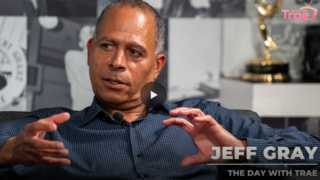
As Caesars Entertainment emerged from its $18 billion bankruptcy as a different company, it’s interesting to reflect on the valuable parts of the business that were contested in negotiation. The most valuable of the individual assets that was fought over by creditors was not the company’s Romanesque resort at the heart of the Las Vegas Strip; it was the customer data collected through the company’s Total Rewards program.
The Total Rewards loyalty program sealed Harrah’s (and ultimately Caesars) reputation as an innovative pioneer in “Big Data” marketing, even before the term had been coined. Total Rewards became the Gold Standard for casino loyalty programs that others copied. Today, carded play has changed the way casinos look at players, their preferences, and their spending habits.
In the years following the introduction of carded play, new data science technologies have emerged. Casino analytics is now entering a new renaissance that will empower and embolden the next generation of casino marketers to digest even greater insight from player data.
Data science is the application of scientific processes to extract insight from data. It goes beyond the presentation of simple summary analytics by applying mathematics and statistics to understand the insight within the data at a much deeper level. It also leverages tools from computer science, like data mining, machine learning, and artificial intelligence, to solve otherwise complex problems that cannot be solved using simple tools or dashboards.
Data science tries to answer questions that are futureforward, using historical data as a benchmark to predict a future outcome that the business can then try to influence. For example, database segmentation is a common casino marketing activity. To do this with precision requires evaluating months of historical data and applying statistical methods to quantitatively discover the optimized number of player tiers and allocate the right number of players within each tier. The outcome of this activity is not only greater accuracy with player segmentation, but lower marketing costs with a higher probability that players will respond to casino messaging and generate a significant return.
More sophisticated data science tools like machine learning and artificial intelligence are now seeing application in gaming.
Machine learning is the process of examining large amounts of data to look for patterns and then make predictions on outcomes. It gives a computer the ability to “learn” without being explicitly programmed. Once a pattern is detected, that discovered insight may lead a marketer to take some action. For example, imagine creating a capability to identify the probability that a player will respond to a promotion message. Armed with that information, you could focus promotion messages on those audiences that have the highest probability of conversion. Or you could look at those low probability conversion players and find cheaper methods to engage them.
Artificial intelligence, or AI, is the application of computational techniques where a machine mimics some cognitive function that can be associated with the human mind, such as learning or problem solving. In gaming, AI can be applied to solve problems that require some “learned” optimization that would be very difficult for a human to solve in a short amount of time. For example, imagine trying to optimize your slot floor by mix of machines and spatial arrangement with the goal of maximizing profit. A slot manager could try using heat maps to look for opportunities to better reconfigure the floor. But a small number of reactionary changes to layout will likely have minimal impact. An AI-driven approach would evaluate thousands of potential layout configurations using months of gaming data and player behavior to understand and propose a fully profit-maximized floor.
Clearly these new technologies will radically alter casino operations, just as Total Rewards changed player marketing forever. But the obvious question is, how should you take advantage of these technologies today without over-investing in the hype?
Some things you should consider when making data science investments:
- Ask yourself, what problem are we trying to solve? And be clear on what you expect as a desired outcome.
- Invest in new data science skills for your team. New skills will help transform your organization and better prepare for this next chapter in marketing analytics.
- Look at the current portfolio of products you have already invested in before considering additional technology purchases. You may already own some data science technologies and not realize it, or you may find that those existing investments are underutilized.
You may find that solving specialized casino marketing challenges in a focused way will yield a greater return. Regardless of your approach, ensure that you can get utilization out of your investment.
The next generation of analytics will allow analysts to predict and forecast future outcomes with incredible precision. That’s too late for the old Caesars, but not so late for you.







